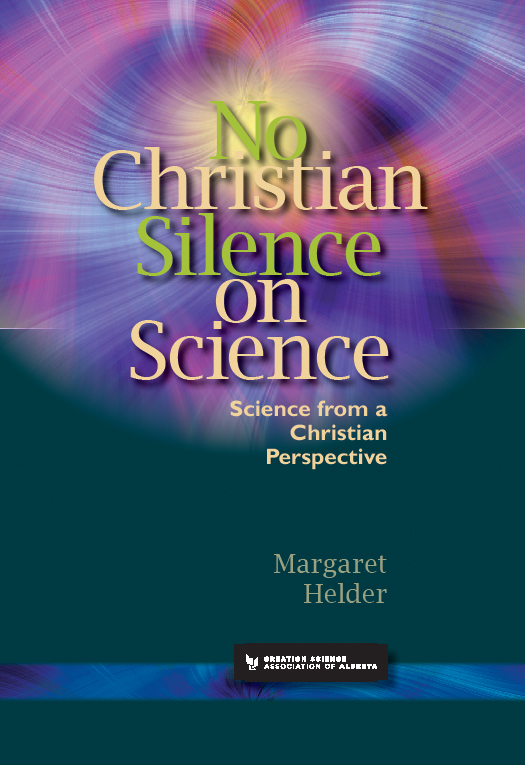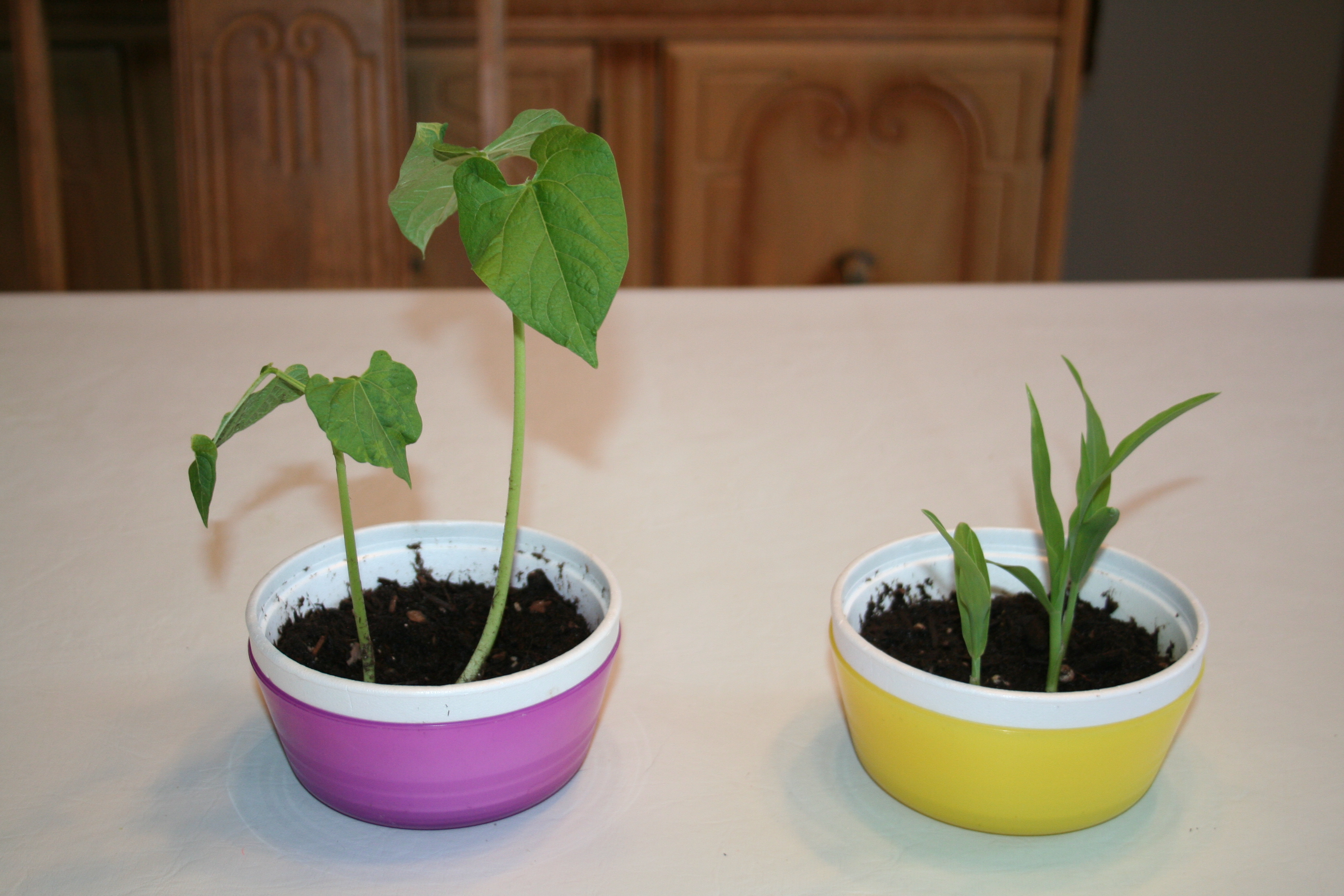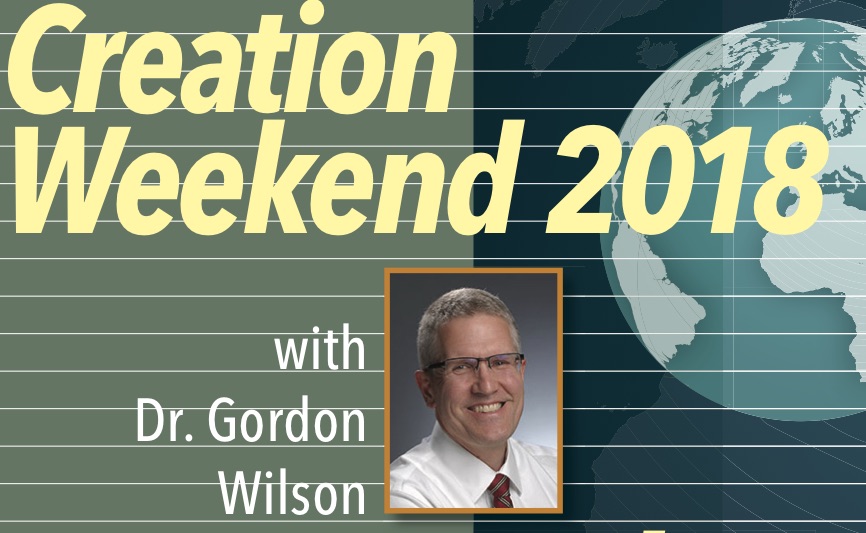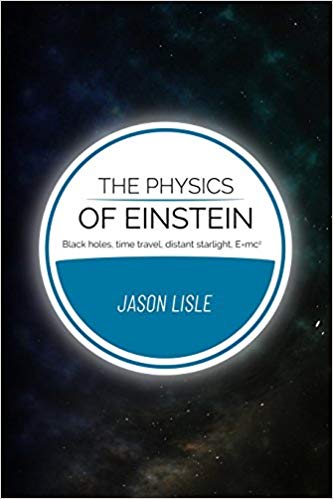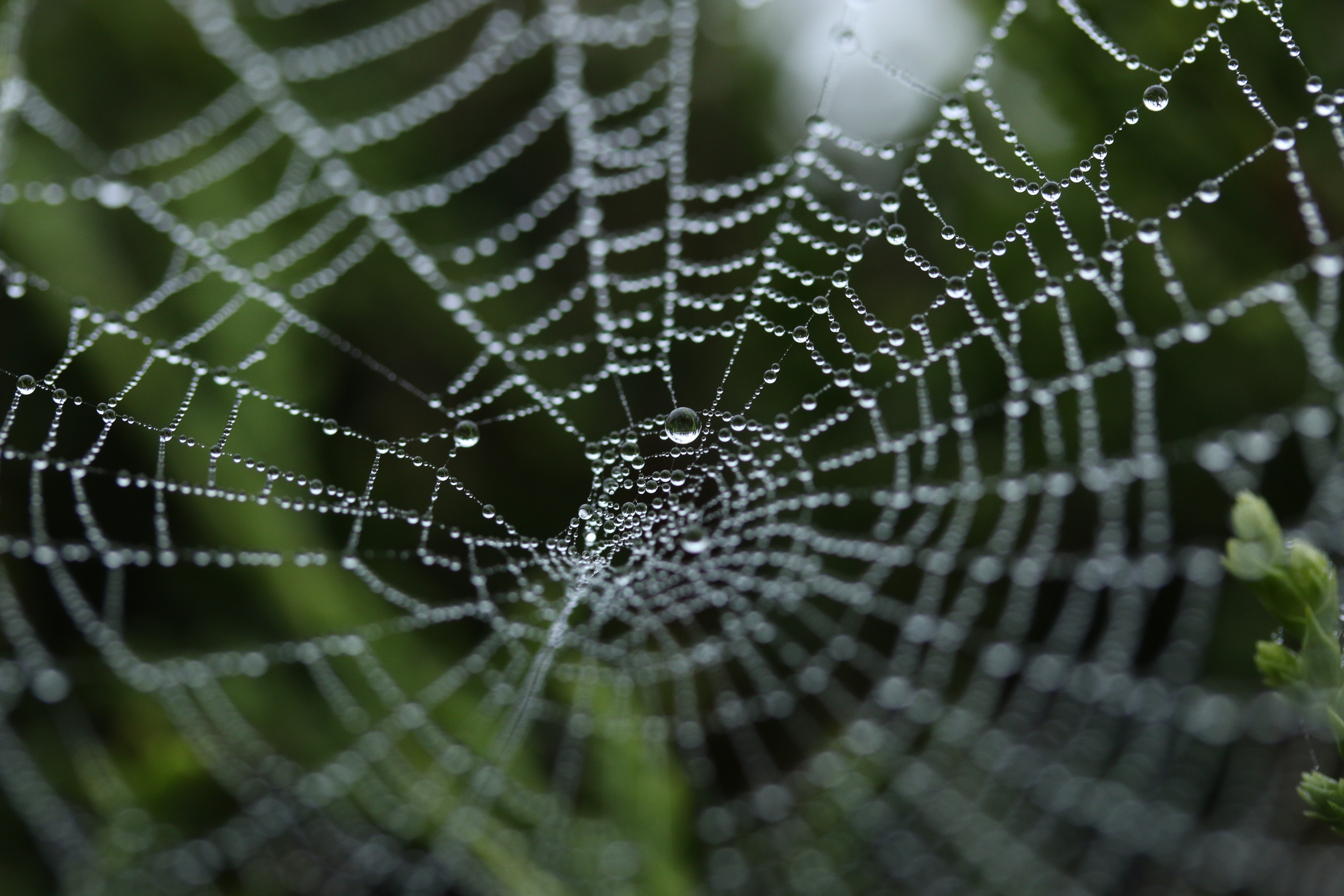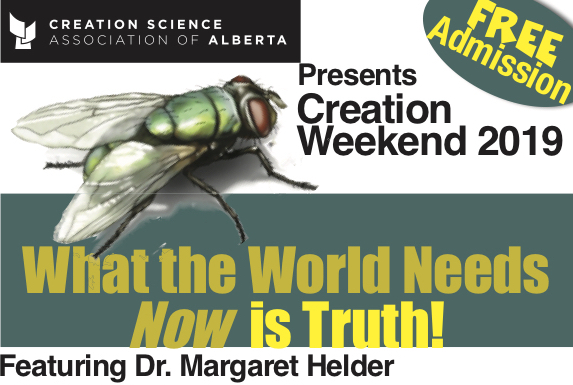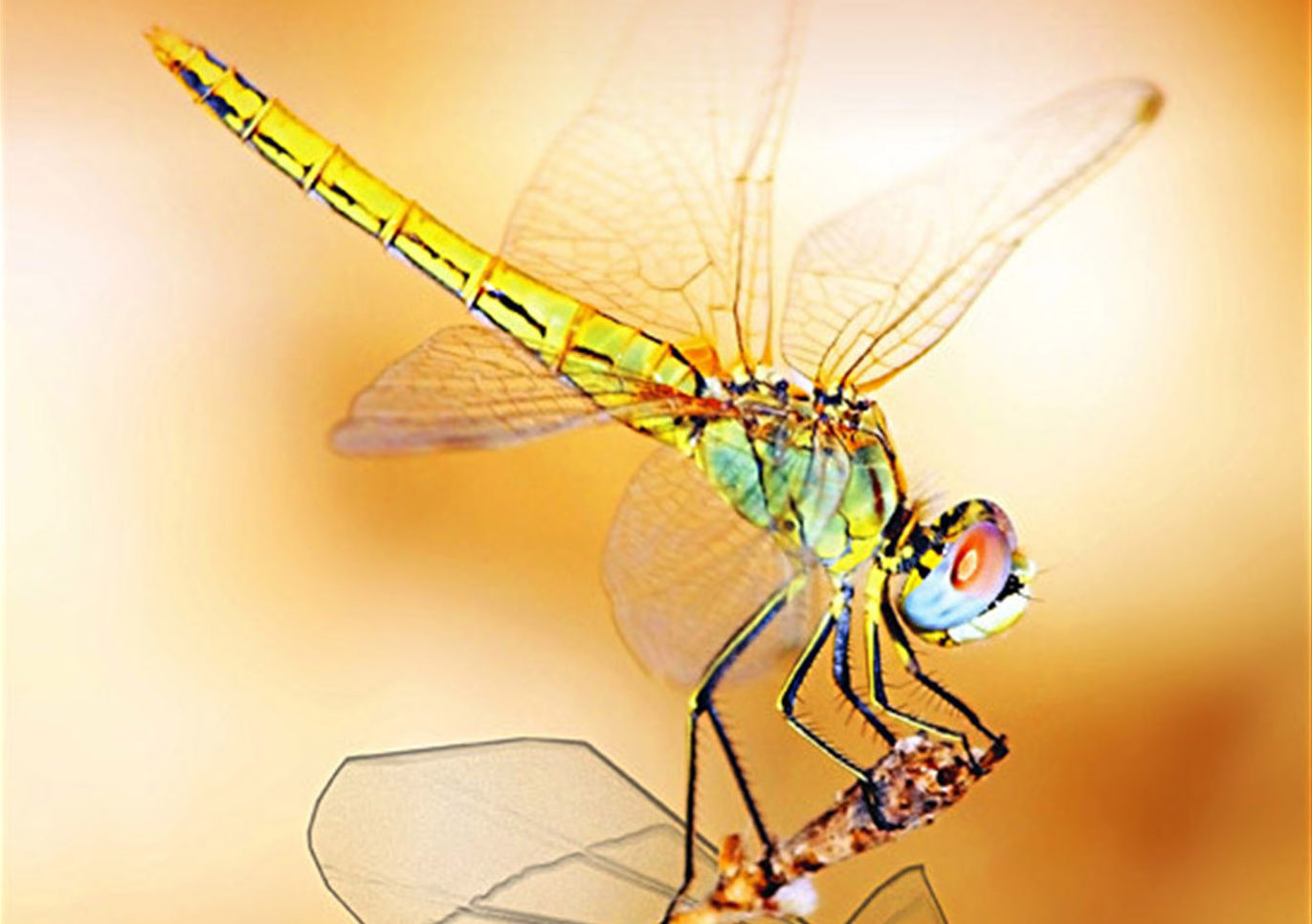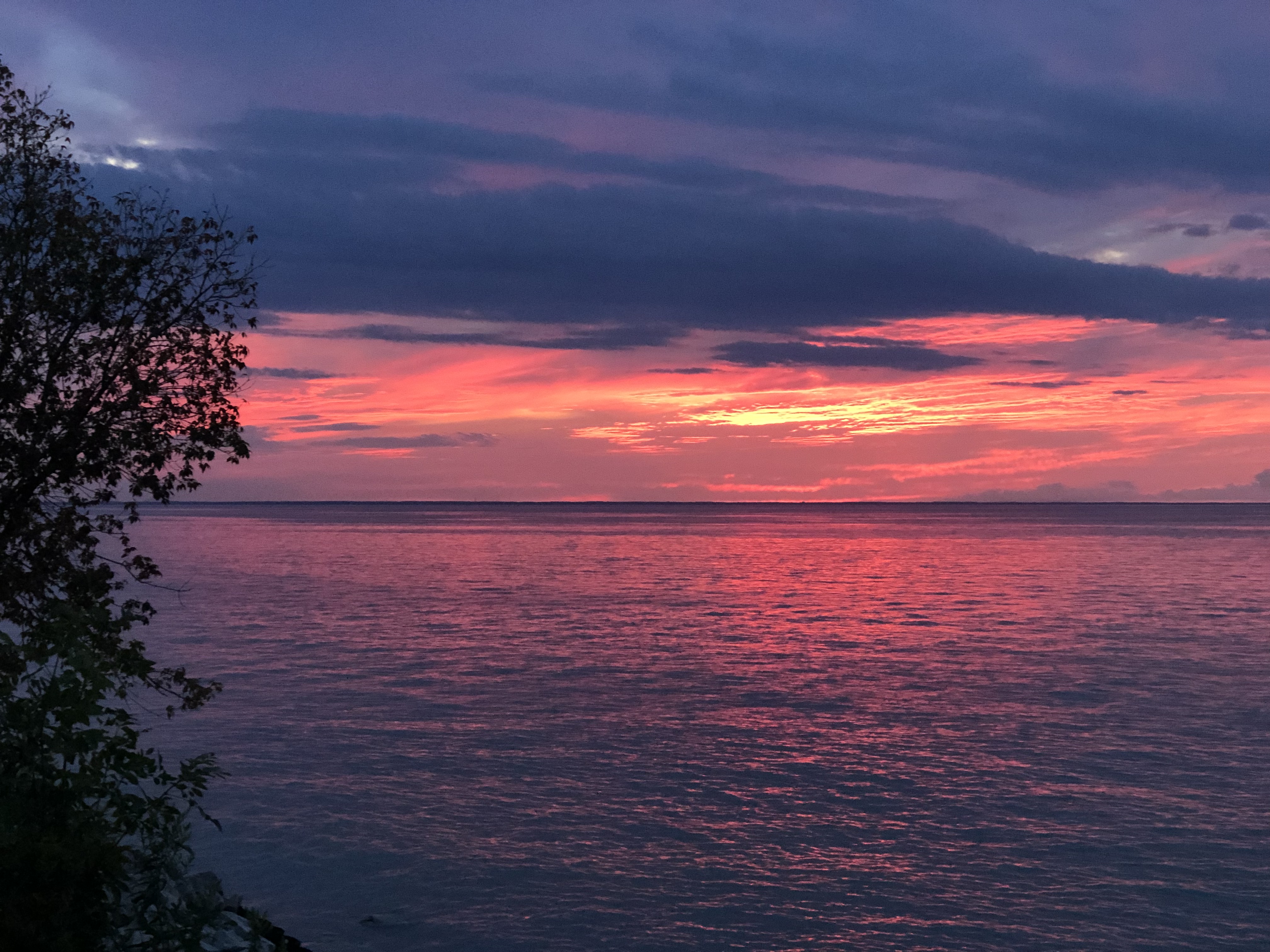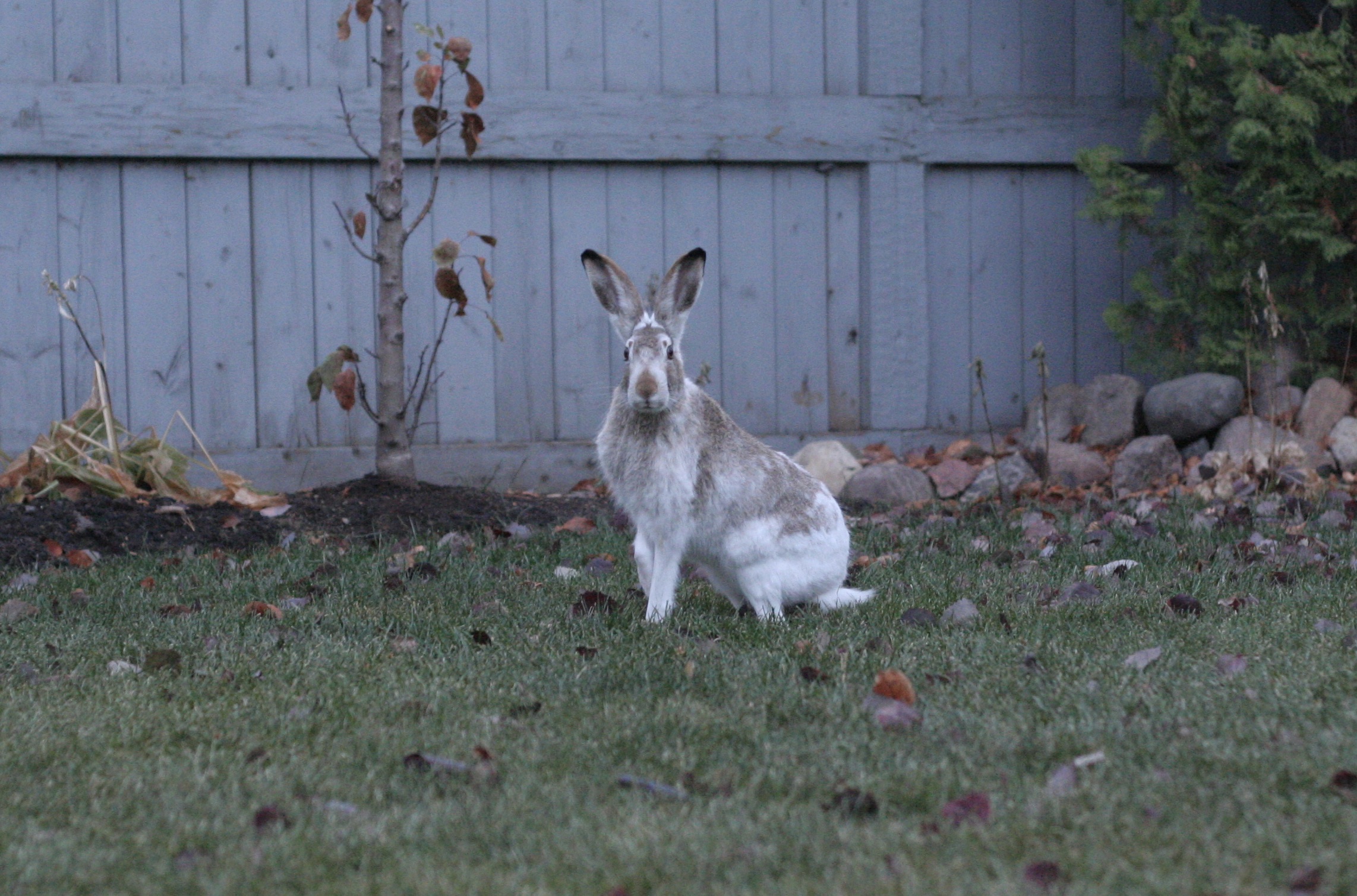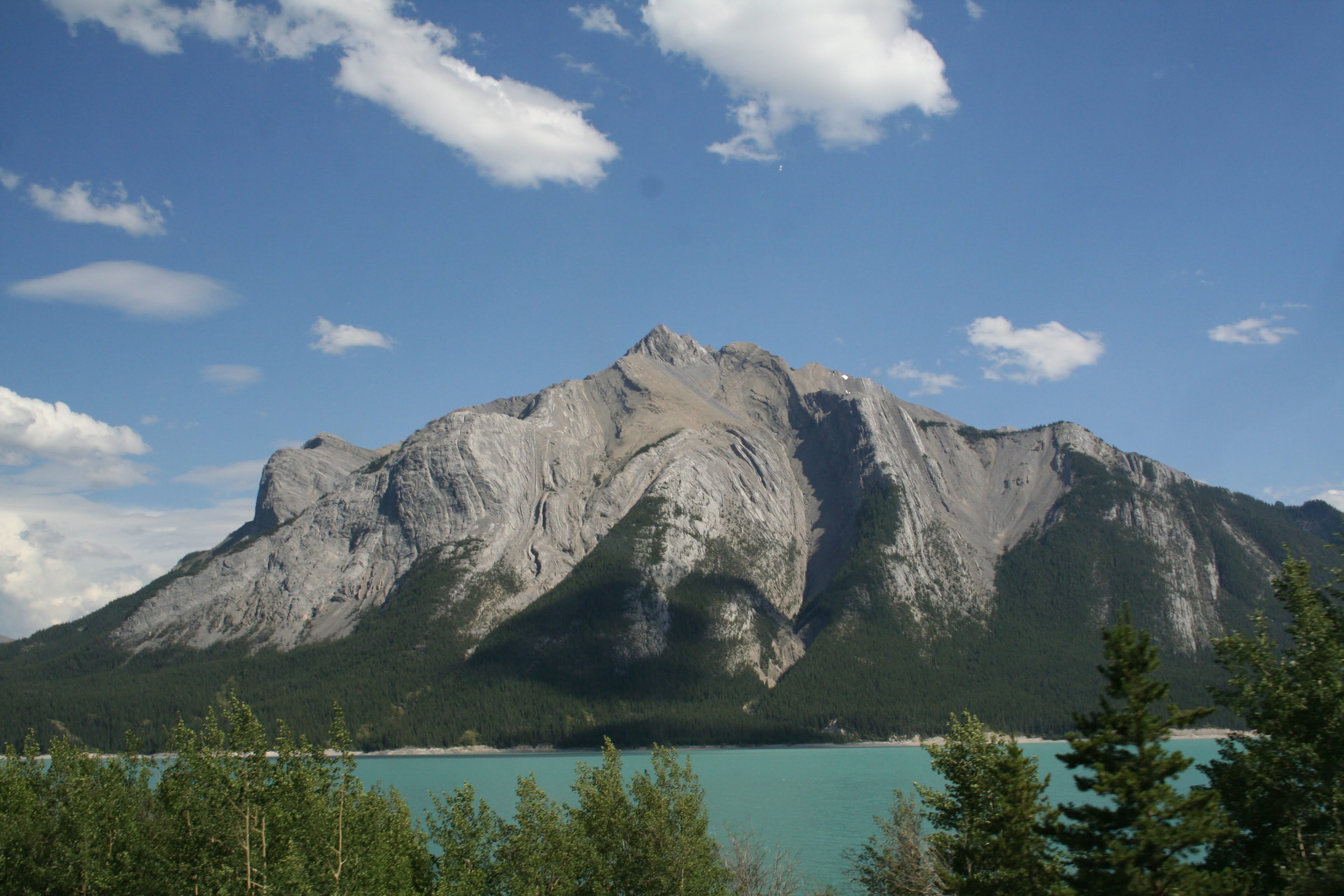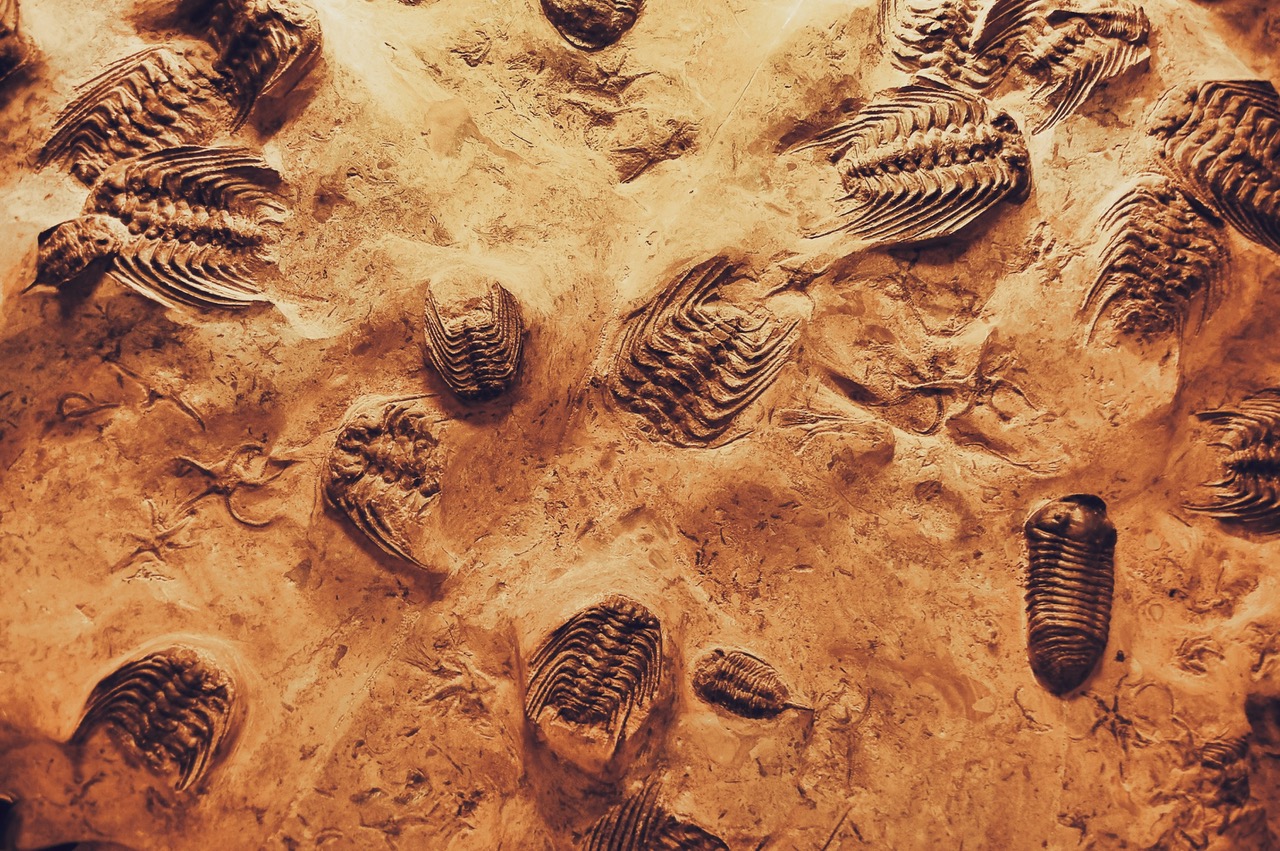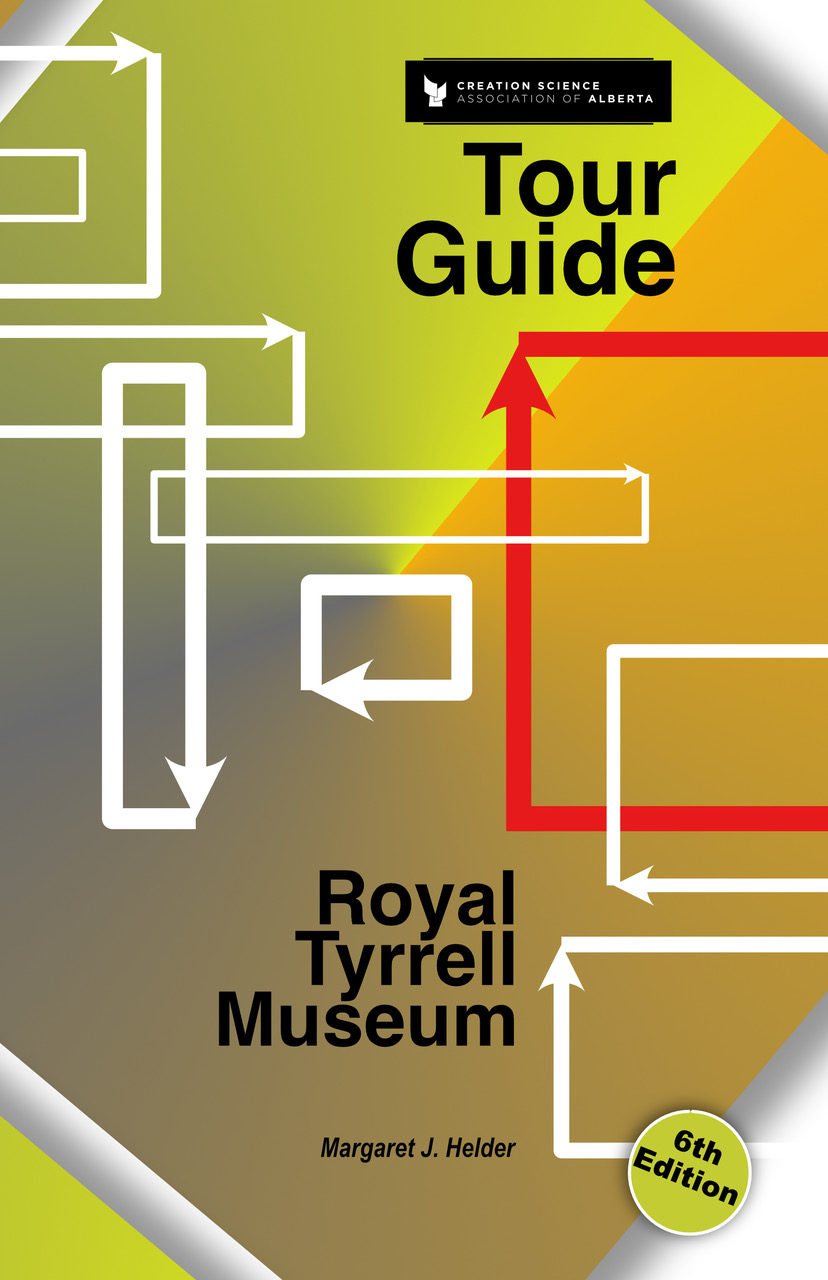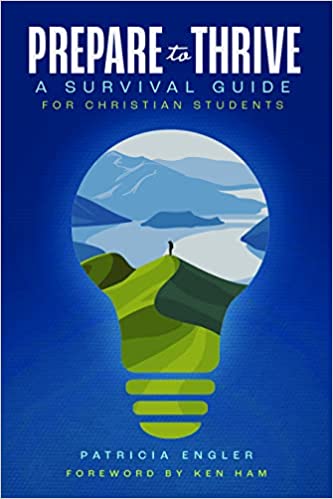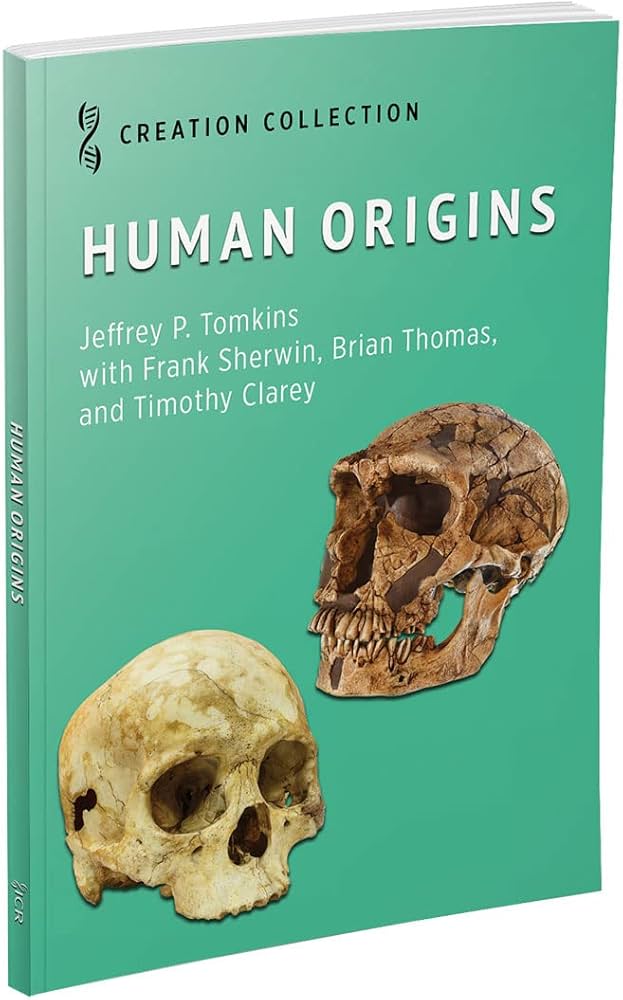Articles » People
Margaret Helder has developed a guide to enhance the learning opportunities and appreciation of the message in her book (which is to encourage everyone to critically evaluate scientific pronouncements). For each chapter there is a brief overview statement. Brief paragraphs follow for each subsection in each chapter with key concepts introduced. There follows for each chapter a list of questions, many of them involving the key concepts. The next section provides detailed answers for each question. A sure to be popular section follows on resources. These are provided under topical headings. Books, articles (all obtainable) and especially video clips on-line, are certain to be useful for any biological studies, not just for this book. Lastly for each chapter, a section on extension is provided. This booklet of about 60 pages, will be available on line (free download) and in hard copy. Inquire through our website for your copy as soon as it is available.
Two “teams” of plants compete for popularity
One evening after dinner at our Opa and Grandmum’s house, Grandmum told us that we were going to do an experiment called Monocot “Meanies” vs. Dicot “Dreamers”. We each took two styrofoam bowls and put holes in the bottom, and then put in some soil. In one bowl, we planted two soaked bean seeds and two dry bean seeds. In the other bowl, we planted two soaked corn seeds and two dry corn seeds. Grandmum said, “Some plants are Monocot Meanies and others are Dicot Dreamers.” She didn’t tell us which was which, but that we would know when they came up. Read the rest of this entry »
Creation Weekend 2018 October 26 & 27
The Creation Science Association of Alberta is excited that our featured speaker for Creation Weekend 2018 is Dr. Gordon Wilson of New St. Andrews College in Moscow, Idaho. Dr. Wilson’s enthusiasm for biology is infectious and the topics which he will present are ones that are very relevant to our lives as Christians today.
Every year, it seems, we hear about anniversaries, some obscure and some more significant. But 2019 is big!! It is the 150th anniversary of a major step forward in our understanding of the chemical elements. In March 1869, Dimitri Mendeleev, an obscure Russian scientist, managed to explain chemistry in a way that made sense. Thus, UNESCO has designated the year 2019 as the Year of the Periodic Table of the elements. Some people consider that this single document is one of the most powerful icons in science. Read the rest of this entry »
Some people actually like numbers and mathematics, and some people don’t. Everybody knows that! Some people however sound positively lyrical on the subject of numbers. Dr. David Berlinsky, for example, in his book infinite ascent: a short history of mathematics (2005) describes the inexhaustible variety of natural numbers and their personalities. (Modern Library Paperback edition p. 5). He lists various demanding disciplines that mathematicians have developed. Beyond the practical and theoretical challenges that mathematics provides however are the insights into nature. As Dr. Kurt Wise pointed out in Faith, Form and Time (2002) “The universe seems to operate with mathematical precision, and natural laws have a mathematical form.” (p. 91) Astronomer Dr. Timothy Ferris elaborates on mathematics in his 1997 book The Whole Shebang: “[M]athematics [is] a codified form of logic that embodies the faith of science that nature works in a rational way.” He adds “Like all scientific theories, relativity is expressed in terms of mathematical equations-” Read the rest of this entry »
During his second lecture at Creation Weekend 2018, Dr. Gordon Wilson stimulated our appreciation of the creation with his presentation entitled “The Magnificence of the Mundane” The words in the title, he pointed out, are actually contradictory. While the word “magnificence” communicates excitement, the term “mundane” suggests that something is boring or dull. But what he wanted to share with us is that God’s work in creation is amazing, displaying God’s wisdom and finesse (Ps. 104:24). And in this context, we are told that King Solomon, full of wisdom, spoke about trees, herbaceous plants, beasts, birds, reptiles and fish (I Kings 4:33). Read the rest of this entry »
Friday and Saturday – October 25 and 26, 2019
Featuring Dr. Margaret Helder
- Original research in algae, aquatic fungi and freshwater ecology
- Taught biology to university and high school levels, and home school science workshops for all grades
- Science writer for Dialogue and Reformed Perspective and other Christian publications
- Expert witness at a trial on creation/evolution in the United States Read the rest of this entry »
Book Review – Inspiration from Creation: How engineers are copying God’s designs
Some years ago, I remember meeting a lady who was very excited at the realization that God is an artist! Similarly, I am very excited about a new book that portrays God as an amazing engineer. The lead author is engineer of exceptional experience and honours, yet he admits that mankind’s skills in engineering practical devices are woefully lacking compared to what we see in nature. Read the rest of this entry »
Order OnlineCreation Science Association of Albert is delighted to present David Coppedge as the featured speaker for our Creation Weekend 2020. Due to the COVID 19 restrictions, Creation Weekend will be a one evening online event this year. David Coppedge was exceptionally well received with his presentations in Edmonton in 2012. Now in 2020, his return promises another tour de force with a presentation entitled Creation is Awe Inspiring! This event will take place on Friday evening, October 23, 2020 at 7:30 pm. To participate in this session, register at www.create.ab.ca/register. Once you register you will receive a confirmation email, and closer to the event you will receive an email with further details. Read the rest of this entry »
I remember suggesting to one of my professors, when I was at university, that a certain course would be a waste of my time since I had already studied that topic. He suggested that there might be more to learn and he was right, of course. In fact, there is always more to learn on any topic. That is why we hear so much about life-long learning. We don’t want to atrophy (dry up) mentally or physically. It is important to keep developing our skills.
Naturally in everything we learn, we have to be cautious. We don’t want to plant desert-loving plants in a wet area of the garden, or do stretches the wrong way, nor do we want to acquiesce to wrong interpretations in science, or history or philosophy or whatever. This does not mean we stop reading! What it means is that we apply critical thinking skills to our various pursuits. Read the rest of this entry »
A lot of people in these COVID times, especially young people, are growing tired of the same old scene, the same four walls, the same view out the windows. No matter how beautiful the scene, it soon ceases to interest us if that is all we see. Nevertheless, even in our same old environments, it is still possible to maintain the flame of interest in the creation. Some young people in Alberta recently shared with me some of their interests in the creation. Clearly their stories show how they are keeping their interests alive. Indeed, these stories can help enhance our appreciation of the creation too. Read the rest of this entry »
Canada’s is proud of her connection with some great inventors, although sometimes the connection is a little remote. Consider the story of Guglielmo Marconi’s invention of wireless communication (radio). He spent only three weeks in St. John’s Newfoundland, but he made the city famous nonetheless. It was in mid-December 1901 that Marconi successfully received signals sent by collaborators from Cornwall, England, a distance of 3430 km (2100 miles). Within a few days Canada concluded an agreement with the inventor for the construction of a wireless communication station in Cape Breton. This provided him with a subsidized monopoly. Marconi then left Canada and the rest is history. Read the rest of this entry »
Marcus Ross has loved paleontology, and especially dinosaurs, since he was a kid growing up in Rhode Island. His twin passions of Christianity and science have provided some amazing opportunities along the way!
Marcus began his formal studies in geology at the Pennsylvania State University, where he earned a B.S. in Earth Science. It was there that he also began his early work in creation science, writing articles and leading a student creation club on campus. Following graduation, he continued his studies with a M.S. in Vertebrate Paleontology from the South Dakota School of Mines and Technology and later a Ph.D. in Environmental Science (Geoscience) from the University of Rhode Island. His dissertation research focused on the fossil record of mosasaurs, a group of large marine-dwelling lizards known from upper Cretaceous rocks around the world. Read the rest of this entry »
Creation Weekend 2021’s on-line conference with paleontologist Dr. Marcus Ross was so dynamic and interesting that it seemed as if we had heard him in person. I found myself thinking about his return trip to Virginia. But, of course, he never left Virginia. Nevertheless, with the wonders of technology, Dr. Ross was able to present two excellent and very different topics. Since his field of expertise is fossils, his whole first presentation dealt with fossils, specifically some scary marine reptiles called mosasaurs. The second talk dealt with the objectives of creationists in their pursuit of science.
In the Royal Tyrrell Museum’s spooky Bearpaw Sea exhibit, if you look up, you will see the skeletons of massive marine reptiles including mosasaurs. Dr. Ross actually came as a student to study Alberta mosasaurs at the Tyrrell Museum. Read the rest of this entry »
HeadStart is a completely new tool available for high school students and their teachers (and postsecondary students). Written and developed by the Creation Science Association of Alberta, this tool is free and easily accessed. Check it out at www.create.ab.ca/headstart
Many people recognize that it is a privilege to learn about God, the Creator and his Creation. That is why, besides observing the natural environment in which we find ourselves, it is a pleasure to go beyond mere observations to discover how things work and why. Most young people undertake to study some science, at least at the high school level. But there is a problem, most programs of study include a lot of evolutionary concepts that point away from God and his work. Even seemingly innocent terms like microevolution, convergence, nucleus, fossil record and plant biology are loaded with evolutionary concepts. However, these phenomena themselves actually point overwhelmingly to the work of God, the Creator as described in Genesis and throughout the Bible. It was to communicate this message, that HeadStart was developed.
Read the rest of this entry »

